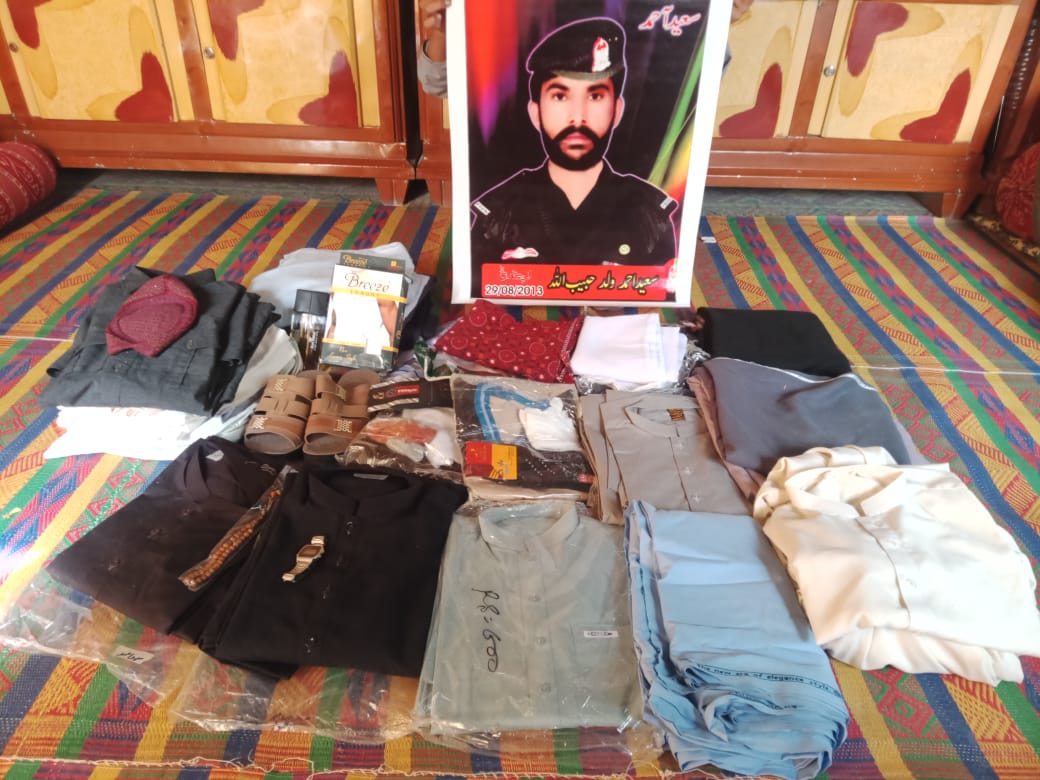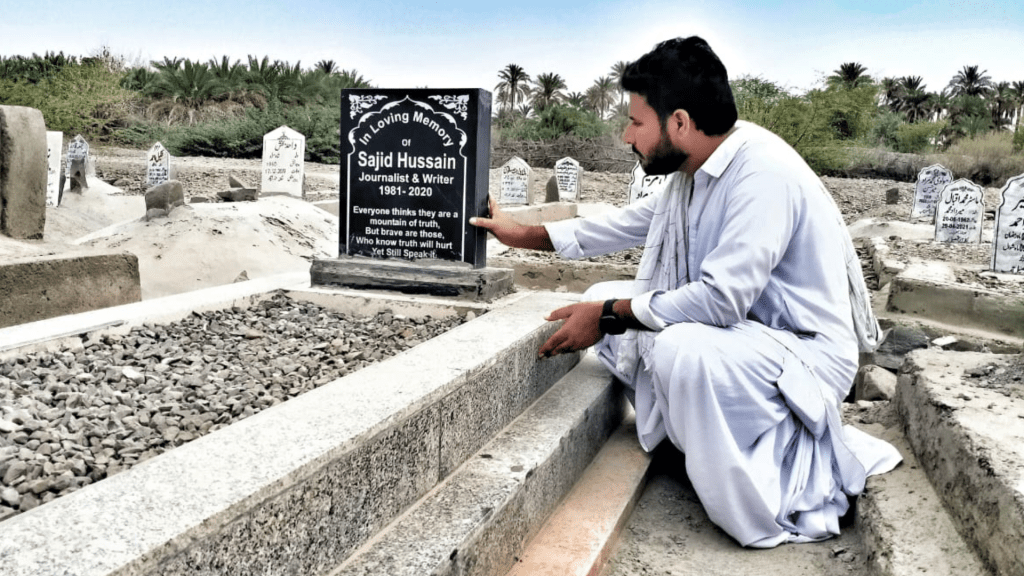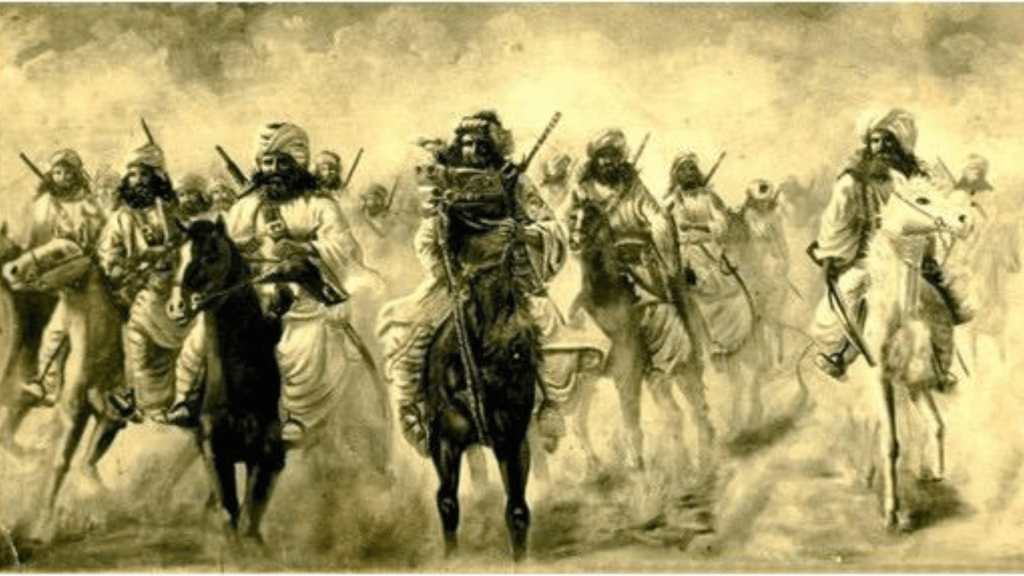After much effort, Saeed Ahmed and Hafiz Abdullah received approval from their superiors to take the weekend off. Cousins Saeed and Hafiz served in Balochistan Levies, a law enforcement force in the rural areas with its origins back in the days of the British raj. Their last day at work, August 29, 2013, was also the day they were last seen in public.
They had been planning for a family get together for quite a while but could not manage to get leave together. Saeed and Hafiz were to visit Quetta, the capital of Balochistan, the next day along with other members of the extended family. On the evening of their last day at work, Saeed called his mother to request her to make maak, a traditional Balochi dish, and his favourite, for dinner. It was the last the family would hear from him for the next five years.
At home, the family was excited about the weekend plans. Shabana, the youngest and dearest of the family, was busy trying to look for a suitable picnic spot. She was just 13.
Saeed, the eldest of seven siblings, had joined Levies a few years ago to support the family after his father, Haji Habibullah, retired in 2010. Those days, Haji mostly stayed at home and looked after tribal affairs. In fact, the family was at the time trying to cope with the terrible loss of two of Saeed’s brothers, and they thought having a day out together would be a good step towards returning to normalcy.
Saeed´s younger brother Mir Mohammed, then 23 years old, had died in September 2009 in mysterious circumstances, on Laylat-ul-Qadr, one of the holiest dates in the Muslim calendar. That day, he had gone to buy household items and never returned, mysteriously disappearing from the city. His motorbike was found from a ditch in the outskirts which indicated his death was not a result of a robbery. The family carried out their own investigation and found that two of their neighbours had lured him there and killed him. The family then registered a complaint, prompting the police to arrest them. During the interrogation, they pleaded guilty to Mir’s abduction, killing and dumping his body in a Kariz.
Eventually, on the culprits’ provided information, the police recovered the body. Mir had been strangled to death.
However, a mere six months later, both the murderers were released without any explanation. Their gratuitous release stirred many a suspicion in the area, as it is common knowledge that only Pakistan army-backed killers and gangsters enjoy such “courteous” treatment from the courts.
Anyhow, for Haji Habibullah, the next few years were not so generous. Three years later Saeed’s other brother Riaz Ahmed, then 17 years old, disappeared. The family filed a police case and initiated another search. They found that unknown gunmen had whisked him away. Three months later, Riaz’s mutilated body was found in the mountains of Amach, Mastung. The autopsy report revealed that he had been stabbed multiple times. This time the suspicion that the army was directly involved was stronger as the Pakistan army’s kill and dump policy was in full swing across Balochistan at the time.
When Saeed and Hafiz did not show up for their favourite maak dinner, Saeed’s mother went into a depressive episode. Shabana sent him a text, asking him to come as soon as possible. Saeed didn’t answer, nor did he return by the next morning. By late evening, Haji Habibullah called Hafiz’s home to see if they were there. Hafiz’s brother said that he had not returned since the previous day and the family had thought they were at Saeed’s place.
With this call, another desperate search for Haji Habibullah´s third missing son began. On the third day, Haji received a call from Wali Khan police station that the police had found Saeed’s motorbike abandoned at Jungle Cross Mastung. Haji immediately went to the police station and filed a case of the disappearance of Saeed Ahmed and Hafiz Abdullah. As the incident seemed to unfold in the same previous patterns of Mir Mohammad and Riaz Ahmed’s murders, the family’s concerns increased. But a week later, a recently released ‘missing’ person Saifullah Sasoli showed up at Saeed’s home. He informed his father that he was released from the army´s illegal custody and that he had met Saeed and Hafiz in a dungeon at a Frontier Corps camp in Padha Mastung. He said they had met very briefly, exchanged names and promised to inform each other’s families if any of them was released at any time.
Haji once again approached the police to inform them about Sasoli’s testimony but the police refused to take it into account and take any action against the military. Three days later, Sasoli was hit and killed by an unknown vehicle. Years later, the commission on enforced disappeared persons also refused to take ‘the testimony of a dead man’ into account. Sasoli’s killers were never found nor did the vehicle which hit him.
Bibi Zargul, Saeed’s mother, held a press conference in Quetta and pleaded with the authorities to release Saeed and Hafiz, and if they had committed any crime, they should be presented in front of a magistrate and due course of the law should be followed. They also filed their disappearance cases with the Commission of Enquiry on Enforced Disappearances which is still pending without any progress.
Saeed’s disappearance shattered the family once again. This time both emotionally and financially as he was the sole earner in the family. Saeed’s other two brothers quit their studies to find jobs to feed the family. Shabana, the youngest, was the one who was affected the most. She too quit her studies and remained at home. She had already seen the mutilated dead bodies of two of her brothers, and not knowing Saeed’s whereabouts and fate, she was devastated. Shabana fell into a psychological illness and isolated herself for most of the time. In May 2016, she died at a young age. The doctor said she had a cardiac arrest.
Then, on a usual day, five years after their disappearance, just when the family had lost all hopes, Hafiz was released from the army´s dungeons in a very critical condition. He explained that back that night while returning home, they had been stopped by Frontier Corps personnel and whisked away without any explanation. They were kept together in a single cell for more than a year and later separated. He had spent the rest of the four years in solitary confinement. Hafiz is still too scared to share his experience of his detention time. He knows he could end like Saifullah Sasoli if he talks.
Ten days after Hafiz’s release, three FC officials visited Haji Habibullah and assured him that Saeed would also be released if he signed a paper that they had brought to him. The old man signed it. Four more days passed and Haji Habibullah received a phone call from one Colonel Naseebullah of Frontier Corps and was asked to visit him in the army camp for some final paperwork. The colonel once again assured Haji that Saeed would soon be released. He took his signatures on more papers.
A year later in 2019, the commission closed Saeed’s case without any explanation and notification to his family. At the request of the family, the case was reopened in late 2020 and since then his family has regularly attended the commission’s hearing.
I talked to Haji Habibullah and asked him about the current status of Saeed’s case. He said: “The law in this country is so fragile that you don’t realize until you come across it. We have filed FIRs with the police, we have testimonies, eyewitnesses and even Colonel Naseebullah admitted that Saeed is in their possession and assured me of his release. I also filed the case with the commission. Are there any other remedies left to be exhausted?”
Haji says their lives are at a halt. “We don’t celebrate anything. We have forgotten what happiness is. In fact, we don’t talk about anything anymore. Silence and pain have overshadowed our lives. Saeed’s mother stitches clothes and buys shoes for him on every Eid hoping that he returns.” The pile of clothes and shoes is increasing every year in Saeed´s room keeping the parents hopes of his return alive.
But not everyone in the family is so optimistic. Saeed was engaged but not married and recently the in-laws broke his engagement. They said that they don’t know if Saeed would ever come back and they cannot punish their daughter into an unending wait.
“I thought, after retiring, I will spend the rest of my life with my family and friends but God has decided something else for us,” Haji pauses. “I just wish Saeed returns before I die, I might die in peace,” he concludes.
Abdulla Abbas is executive director of Human Rights Council of Balochistan. He lives in exile in Germany and can be reached at @AbdullahAbbas



